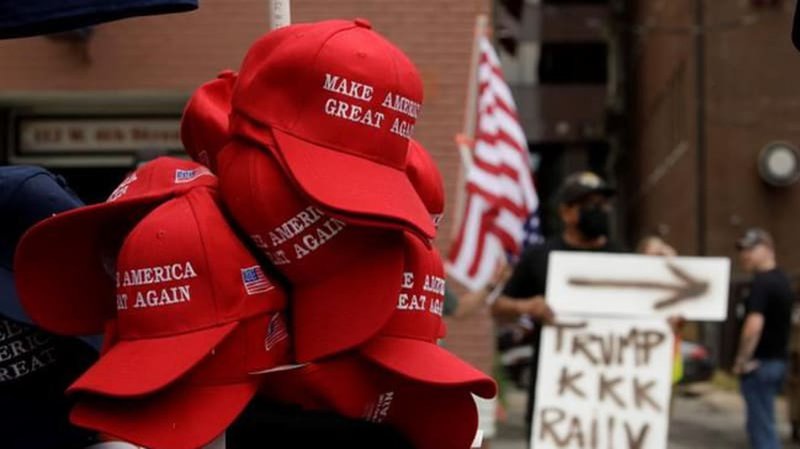
In tension-filled Tulsa, Trump tempting fate in more ways than one
TULSA, Okla. — In the city that bore witness to the Black Wall Street massacre of 1921, the twin epicentres of America’s seismic shift on justice, race and social disparity found themselves in close proximity Saturday as President Donald Trump prepared to re-engage the engines of his bid for a second term.
Supporters, undaunted by either the prospect of contracting COVID-19 or the possibility of clashes with Black Lives Matter protesters, poured into Tulsa’s fortified downtown core to see the man himself back in his element: blasting back with both barrels at his legions of political enemies and detractors.
Many Trump devotees had already been camped out on the street, some of them in line for nearly a week, for a chance to witness the president’s first “Keep America Great” rally in nearly four months.
“I just want him to know that we all still support him, even with all this craziness going around,” said Jonathan Johnson, 30, who made the 90-minute drive from Oklahoma City for the chance to see Trump in person.


